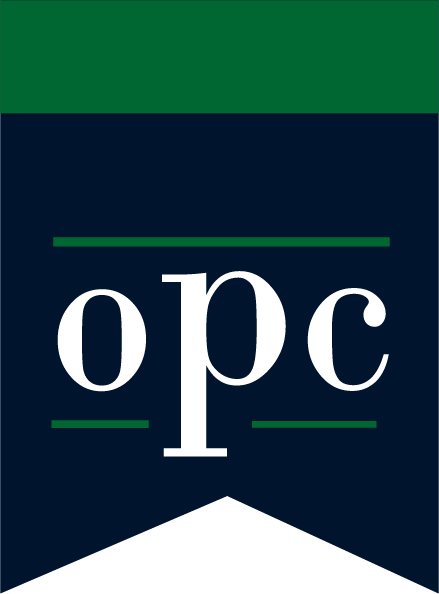
Organizing a Mission Work as a Particular Church
The process of developing a mission work into a mature, organized congregation is one that takes time and requires careful evaluation along the way. New Testament church-planting practice provides us with a number of observable governing commitments that can be of help in evaluating the developing maturity of our mission works today. These include …
A commitment to godliness of conduct.
A commitment to a covenant community emphasis.
A commitment to God-centered worship.
A commitment to constancy in prayer.
A commitment to changed lives.
A commitment to a worldwide vision.
To learn more about these commitments, see Manual ch. 5.
Core Commitments in a Maturing Mission Work:
Further criteria for judging a mission work’s readiness to be organized:
Manual
“Until Christ is formed in you” (Galatians 4:19) is the basic concept that is at issue in determining a mission work’s readiness to be organized. The presbytery and its home missions committee, along with the overseeing session and the members of the mission work themselves, all need to be asking honest and loving questions concerning their readiness.
Do the members of the mission work love, respect, and defer to one another?
Do they respect, submit to, and obey their temporary, presbytery-appointed leaders?
Does their worship of God as a congregation unify them and encourage their hearts?
Are they growing in spiritual maturity as a result of the ministry of the church?
Are they reaching out to their neighbors, relatives, and friends, and is God using their efforts to gather more of His elect into the church?
Are they demonstrating a concern for the needs of those in their community, and are they involved in ministries of mercy?
Do they understand what the Orthodox Presbyterian Church is?
Do they share the OPC’s interests and concerns?
Are they actively involved in praying for, and financially supporting, the OPC’s ministries of home and foreign missions and Christian education?
Are they appreciate of the work of their presbytery on their behalf?
Evaluative questions for the overseeing session and presbytery committee to ask:
Manual
Are the governing commitments observable in a maturing Reformed congregation, listed in Chapter 5 of Planting and Orthodox Presbyterian Church present in the mission work?
Are ministries of spiritual growth, evangelism, and mercy in place and effective?
Are sound and Biblical administrative practices and procedures being followed?
Calling a congregational meeting
Establishing a constituting roll.
Too often, the training of officers is seen as the most urgent work performed by the organizing pastor, and the plan is to get the church organized as quickly as possible. However, the church is much more than its elders. A word of caution is therefore issued in this discussion of the training of office-bearers.
Identifying potentially qualified men
The qualifications for an officer-bearer found in 1 Timothy 3 deal almost entirely with the matter of godly character. Paul’s use of such words as “blameless,” “temperate,” “sober-minded,” “hospitable,” and “reverent,” along with his prohibitions against being violent, quarrelsome, covetous, or greedy, indicate the kind of godly character that the church is to look for in the men whom God is calling out to be its servant-leaders. Being able to teach is only one of many character traits of an overseer, but it is often given undue prominence in the training and qualification of men who serve as ruling elders. A balanced approach to training in all areas of Reformed life and doctrine is important, especially for the church’s first set of indigenous office-bearers. But even among those who appear otherwise qualified, it is often the case that God is not calling them to such service as office-bearers. It quickly becomes apparent that the men whom God is calling fit the profile of the acronym FAT—they are faithful, available, and teachable. They are men who, over time, have demonstrated that they are faithful to the church’s ministry and stated services, who accept responsibilities willingly, and who give generously. They are available to help, to grow, to train, and to meet when the busy lives and priorities of other men keep them from such availability. And they are teachable, open to instruction and study, imitating godly examples and practices.
Teaching the congregation about church office and officers
It is important that the congregation be taught about church officers and their qualifications from the earliest days of the mission work’s public ministry. That teaching should be organized and presented around Biblical principles and practices. Too often such information is conveyed only as a necessity for the organization of the church and only as a matter that has to do with the church’s form of government. It is vital that the people of the mission work have a proper Biblical expectation that God will provide the congregation with the men whom He has called to be their servant-leaders, and that when He does so, the people of the congregation are fully prepared to submit to their authority and to follow their lead.
Demonstrating worthiness for office
The first officers of a mission work need to recognize that they must show themselves worthy and qualified for office if they are to be identified and chosen by the people. They must in certain respects “run for office” by demonstrating godly character, hospitality, and effective service to the church. They must be recognized as those within the congregation who are encouragers and trustworthy counselors, holding to the mystery of the faith with a clear conscience. The necessity of demonstrating worthiness for office even extends to the organizing pastor, if he senses God’s call to remain on after the mission work is organized as the pastor of the people he has grown to love. The Biblical principle that officers are chosen by the people can never be short-circuited as the church nears the time of its organization.
Methods of training
The particular training materials and methods used are matters for overseeing sessions to decide, but there are some specific considerations which need to be discussed when training officers in preparation for the organization of a mission work as a new congregation:
Duration – Training should be long enough to allow ample time for covering a wide range of material, but short enough so that the progress of the men being trained can be observed by the people of the mission work and so that the length of the preparation time does not cause undue concern for the progress of the organizational process. A duration of six to nine months is usually sufficient.
Intensity – The training of the church’s first officers serves a dual purpose. First, it is to equip the men with all that it necessary for them to serve as effective elders and deacons. Second, it is to set a high standard for office-bearers, so that the newly organized church will be able to maintain a strong Biblical leadership standard for its officers in the years to come. Decisions must be made with regard to the intensity of the requirement to be apt to teach and what it means to be of good report. But whatever method or materials are used, it is important that all officer trainees be equipped with sufficient training so that they may in good conscience hold fast the faithful Word and so that they will be able to evaluate problems and situations which arise at the congregation and presbytery level. In addition, they should be exposed to all areas of ecclesiastical ministry, including theology, church history, polity, and the rudiments of Christian counseling.
On-the-job-training – It is vital that the gifts and effectiveness in ministry of officer trainees be tested and demonstrated within the life of the congregation. It is also necessary that they be given close and personal access to the ministries of the organizing pastor and the overseeing session during the time of their training. Their first visits in the homes of the members of the congregation they will serve should be made long before they are elected and ordained. And the overseeing session should at some point in their training incorporate officer trainees into regular meetings of the session for the sake of both exposure to meeting protocol and continuity with past actions and decisions.
Resources for officer training and examination
The call to a pastor is a formal document that is acted on at the organizational meeting of the congregation in which the man of their choosing (most often the organizing pastor) is formally and officially called by them to be installed as their first pastor. manual
Calling a Pastor
Write a petition to particularize. A petition to be organized as a new and separate congregation is a formal document that comes to the presbytery near the end of the development process. This is usually a letter signed by the members of the mission work, asking that they now be allowed to choose their own officers and call their own pastor.
To organize a mission work as a new and separate congregation
The Service of Organization
After the Home Missions Committee has completed its work and reported to the presbytery in accordance with FC XXIX: A.4.e, it can be moved:
That the presbytery proceed to organize ________ Church in ________ as a new and separate congregation of the Regional Church of ________, in accordance with FG XXIX: A.4, and authorize that a service of recognition and installation be held on ________, and that the home missions committee be appointed as a committee on arrangements for that service.
Order of service resources:
